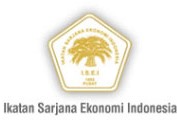Government’s Cash Transfers And School Dropout In Rural Areas
(1) Faculty of Economics, Universitas Negeri Semarang, Semarang City
Abstract
Indonesia is committed to education but the Government of Indonesia still struggle with dropout problem at upper secondary school level, especially students from rural areas who dropping out of school before graduating. The dropout events can be explained through the demand for education. In 2008 Government of Indonesia introduced Bantuan Siswa Miskin program, the Cash Transfers for Poor Students (recently is known as Kartu Indonesia Pintar), in order to reduce numbers of dropouts. The program is mainly to cover students’ indirect costs and is implicitly used to increase students’ demand for education. The objective of this study is to get better understanding on the impact of government’s cash transfers on rural students’ dropout at upper secondary schools in Central Java Province. Primary data was collected from rural areas in all regencies and cities. The likelihood to drop out is estimated using Probit regressions. There are two main findings in this study. First, the result shows that higher education expenditure is significantly increasing the probability of rural students to drop out. Second, it is evidence that government’s cash transfers significantly diminish the rural students’ likelihood of dropping out. Based on the findings, it is suggested the Government of Indonesia must reduce education costs and the government also should expand the number of cash transfers for poor rural students.
Keywords
Full Text:
PDFReferences
Belfield, C. R. (2000). Economic principles for education: Theory and evidence. Cheltenham, UK & Northampton, MA: Edward Elgar.
Bergeron, J., Chouinard, R., & Janosz, M. (2011). The impact of teacher-student relationships and achievement motivation on students’ intentions to drop out according to socio-economic status. US-China Education Review, B2, 273-279.
Cameron, L. (2009). Can a public scholarship program successfully reduce school drop-outs in a time of economic crisis? Evidence from Indonesia. Economics of Education Review, 28(3), 308-317.
Dearden, L., Emmerson, C., Frayne, C., & Meghir, C. (2009). Conditional cash transfers and school dropout rates. Journal of Human Resources, 44(4), 827-857.
Garcia, S., & Hill, J. (2010). Impact of conditional cash transfers on children's school achievement: Evidence from Colombia. Journal of Development Effectiveness, 2(1), 117-137.
Glewwe, P., & Kassouf, A. L. (2012). The impact of the bolsa escola/familia conditional cash transfer program on enrollment, dropout rates and grade promotion in Brazil. Journal of Development Economics, 97(2), 505-517.
Glewwe, P., & Olinto, P. (2004). Evaluating the impact of conditional cash transfers on schooling: An experimental analysis of Honduras’ PRAF program. Final Report for USAID. University of Minnesota.
Hosmer, D. W., Lemeshow, S., & Sturdivant, R. X. (2013). Applied logistic regression (3rd ed.). Hoboken, NJ: John Wiley & Sons, Inc.
Human Rights Watch (2005). Failing our children: Barriers to the right to education. New York City, NY: Human Rights Watch.
Indonesian Central Statistics Agency (2011). Trends of selected socio-economic indicators of Indonesia November 2011 [Press release].
Indonesian Central Statistics Agency (2013a). Trends of selected socio-economic indicators of Indonesia, May 2013 [Press release].
Indonesian Central Statistics Agency (2013b). Trends of selected socio-economic indicators of Indonesia, November 2013 [Press release].
Indonesian Central Statistics Agency (2016a). Average Years of Schooling for Population 15 Years of Age and Over by Location
Indonesian Central Statistics Agency (2016b). Average Years of Schooling for Population 15 Years of Age and Over by Province
Indonesian Central Statistics Agency (2018). Number and percentage of poor people and poverty line, 1970 – 2017.
Larasati, D., & Howell, F. (2014). Bantuan siswa miskin (BSM): Indonesian cash transfer programme for poor students (Research Brief No. 46 July/2014). Retrieved from The International Policy Centre for Inclusive Growth: http://www.ipc-undp.org/pub/eng/PRB46_BSM_Indonesian_Cash_Transfer_Programme_for_Poor_Students.pdf
Ministry of Primary and Secondary Education and Culture of the Republic of Indonesia (2017). Summary education data year 2016/2017. Jakarta, Indonesia: Ministry of National Education and Culture Republic of Indonesia.
Ministry of Women Empowerment and Child Protection & Indonesian Central Statistics Agency, 2015 Profil anak Indonesia 2015 [Indonesian children profile 2015]. Jakarta, Indonesia: Ministry of Women Empowerment and Child Protection.
Rumberger, R. W., & Thomas, S. L. (2000). The distribution of dropout and turnover rates among urban and suburban high schools. Sociology of Education, 73(1), 39-67.
Schultz, T. P. (2004). School subsidies for the poor: Evaluating the Mexican Progresa poverty program. Journal of Development Economics, 74(1), 199-250.
Sparrow, R. (2007). Protecting education for the poor in times of crisis: An evaluation of a scholarship programme in Indonesia. Oxford Bulletin of Economics and Statistics, 69(1), 99-122.
Sriyana, J. (2018). Reducing Regional Poverty Rate in Central Java. JEJAK: Jurnal Ekonomi dan Kebijakan, 11(1), 1 – 11.
StataCorp (2015). Stata: Release 14. Statistical Software. College Station, TX: StataCorp LP.
Terry, M. (2008). The effects that family members and peers have on students' decisions to drop out of school. Educational Research Quarterly, 31(3), 25-38.
Traag, T., & Van der Velden, R. K. W. (2011). Early school-leaving in the Netherlands: The role of family resources, school composition and background characteristics in early school-leaving in lower secondary education. Irish Educational Studies, 30(1), 45-62.
Williams, R. (2012). Using the margins command to estimate and interpret adjusted predictions and marginal effects. Stata Journal, 12(2), 308-331.
World Bank (2013). Spending more or spending better: Improving education financing in Indonesia. Jakarta, Indonesia: World Bank Office Jakarta.
Refbacks
- There are currently no refbacks.

This work is licensed under a Creative Commons Attribution 4.0 International License.






